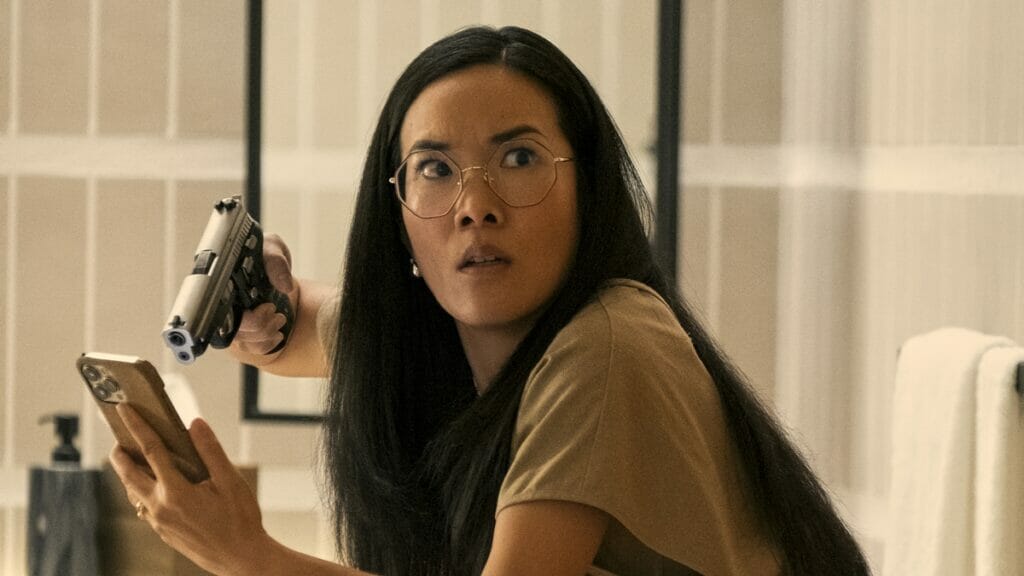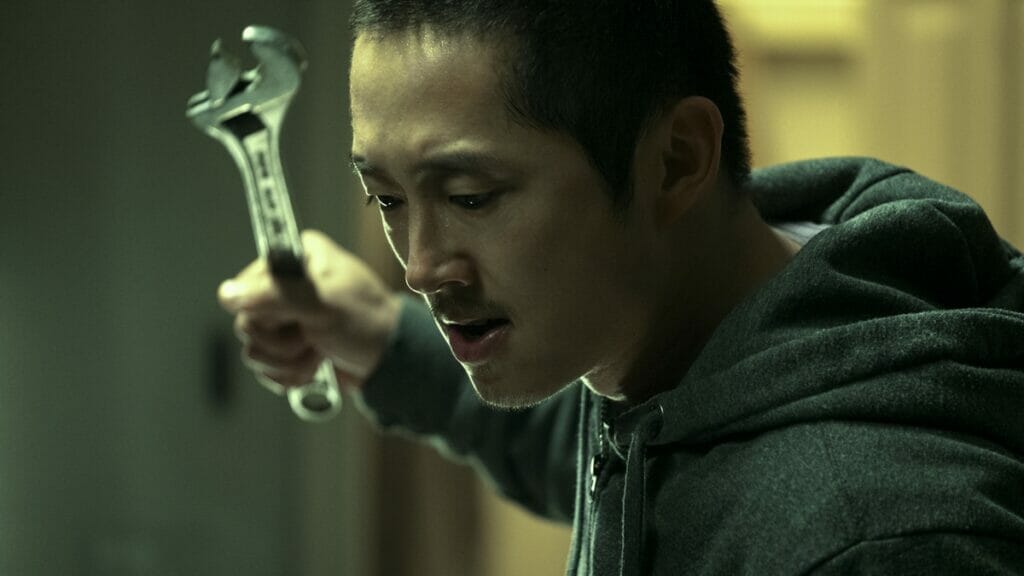Read also:
How to Watch FX Live Without CableHow To Watch AMC Without CableHow to Watch ABC Without CableHow to Watch Paramount Network Without CableNetflix’s new series is its most significant television success in some time.
It takes a little while to find Beef’s groove. This critic assures you that this is not the classic of the streaming age, “give it a few episodes” warning. By the end of the first episode, you will know if the series is for you. However, everything about the show feels overwhelming in the first eight to ten minutes.
Opening in a warehouse-style retail store, there is an intensity that immediately hits the viewer in the face. The bright flat fluorescent lighting, the vast yet claustrophobic inducing space, the bubbling frustration of a clerk repeatedly mistreated throughout the day. Struggling contractor Danny Cho (Steven Yeun) only adds to the sense of the volume being pitched too high. A mix of enraged and powerless, he feels on the edge of either an explosive snarl or a tearful meltdown. By the time plant entrepreneur Amy Lau’s (Ali Wong) aggressive driving in the parking lot causes Danny to pursue her through the local neighborhood, their multi-block car chase is a cathartic relief.
That’s not to say Beef grows pleasant after that moment. In fact, the series indulges in multiple instances of terrible behavior throughout the series, often far worse than the risky but largely harmless high-speed chase. It’s just that once a viewer reaches the end of that catalytic incident, Beef will either firmly have its hooks into them or bounce them off so thoroughly they’ll have no reason to watch even one more episode.

For those in the former category, including this critic, the reward is a series that’s an empathetic primal scream directed at a world that seems to be pitilessly grinding us all down. Yeun, never bad, maintains his streak of exciting projects that let him dazzle. Wong, simply put, has never been better. Beef is a feel-bad classic.
On paper, creator Lee Sung Jin’s series reads as a reinterpretation of Changing Lines, a film directed by Roger Michell from a script by writers Chap Taylor and Michael Tolkin. In it, characters played by Ben Affleck and Samuel L. Jackson collide on the highway, the accident derailing both of their days. Rather than simply let it go, both engage in a series of petty escalating attacks on each other that quickly threaten to destroy or end their respective lives.
However, in practice, Beef proves a stickier affair. Danny and Amy do escalate their road rage incident repeatedly. However, the incident also ties them to one another. Their relationship with each other is constantly evolving. Enemies, yes, but also allies at times. Hating one another but understanding each other in ways that no one else in their lives seems able to equal. Meeting one another’s friends, family, and spouses and proving, briefly at least, to better appreciate them.
A cliché of films where enemies face off is one telling the other, “We aren’t so different, you and I.” Beef never stoops to such corny boilerplate. Still, it successfully demonstrates the similar sources of Amy and Danny’s reservoirs of rage.
[A]n empathetic primal scream directed at a world that seems to be pitilessly grinding us all down.
As noted previously, Amy is a highly successful business owner who sells plants and the lifestyles they represent. She also is sure to make space for her husband George’s (Joseph Lee) sculptures, which do not sell at all. She seems poised at the precipice of a new life as investors led by Jordan (a very game, surprisingly funny Maria Bello) wish to buy her business from her. For Amy, it’s the chance she’s been waiting for to leave behind the work of being a business owner. While it may have been what she wanted at some point, now her only goal is to spend her days with her young daughter.
However, Jordan’s board doesn’t just want the business. They want Amy, too. The deal will make her richer than she’s ever been, an attractive idea given George’s lack of employment. On the other hand, it ties the already spiritually exhausted Amy into a long-term deal that ensures she’ll never be a stay-at-home mom until her daughter is drawing near her tweens. Welcome to capitalism, where even winning means losing.
Danny, in contrast, is fairly unsuccessful in his business. Jittery and, as one former client describes him, annoying, he struggles to land work consistently. He seems to be making enough to just scrape by, but that’s not what he wants. For one, his dream of bringing his parents back to the US from Korea continues to drift farther away. It’s especially painful given the reason they returned to Korea is a get-rich scheme Danny fell into with his cousin Isaac (David Choe) that cost the family the motel they owned and operated.

As a hairshirt, Danny’s trying to be the perfect son. Go to church, only date Korean women, earn a good living, and buy a plot of land for his parents to return. Unfortunately, he continues to fall prey to temptation. Whenever the chance arises, he pursues the fast buck. It corrupts even the good things in his life with his desire for money and station. Welcome to capitalism, a system that will force you to indulge in your worst behaviors and then punish you for it.
An excellent supporting cast back up Wong and Yeun, including Young Mazino as Paul, Danny’s soulful himbo younger brother. They reinforce the themes of society’s traps, such as economic pressures, the temptations of infidelity, and the resistance to being angry and unhappy from a different perspective. Then, just when the viewer thinks they have the show’s number, the final two episodes of Beef escalate and flip expectations. It puts us on the same footing as the lead characters.
It may only be the beginning of April, but Beef is a guaranteed best series of the year. If you can handle its intense mix of cynicism, righteous indignation, and true surprising beauty, it will likely prove one of the most rewarding viewing experiences you can ask for.
Beef rampages through Netflix’s neighborhood beginning on April 6.